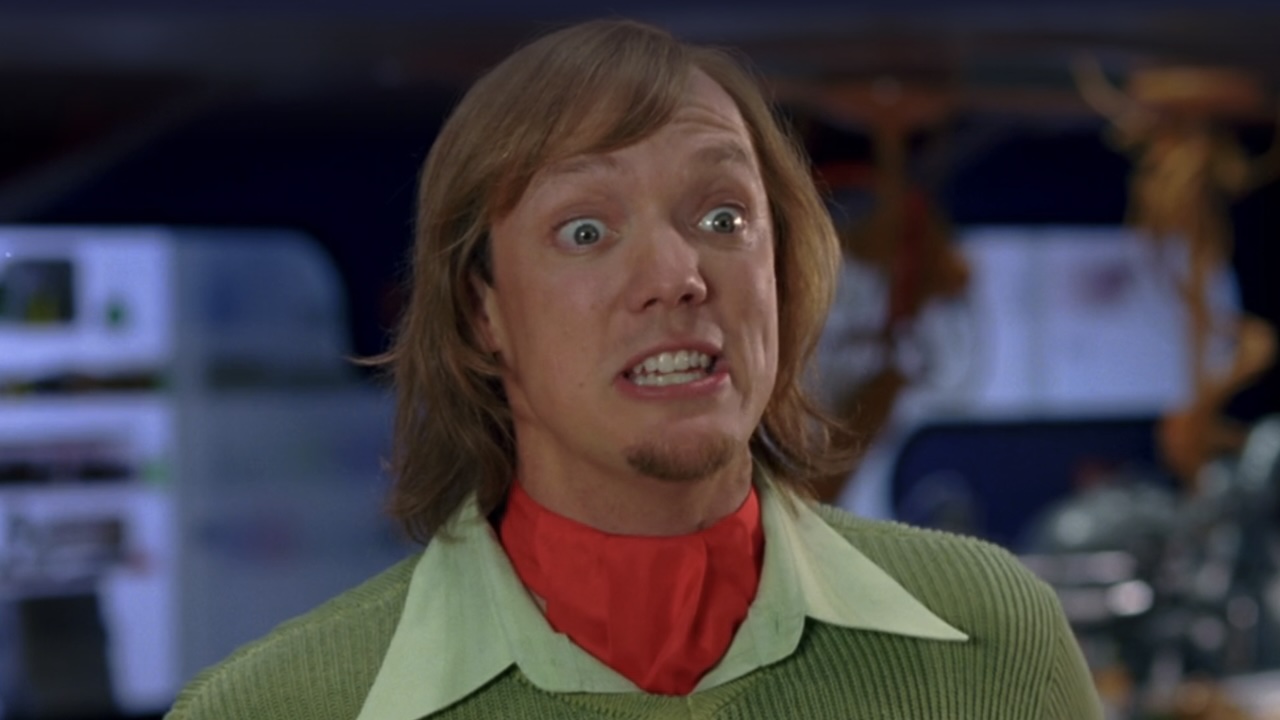Adapting Stephen King's Trucks: The 1997 TV Remake Makes Maximum Overdrive Look Oscar-Worthy By Comparison
Maximum Overdrive is not a great movie, but it's a masterpiece compared to the 1997 remake.
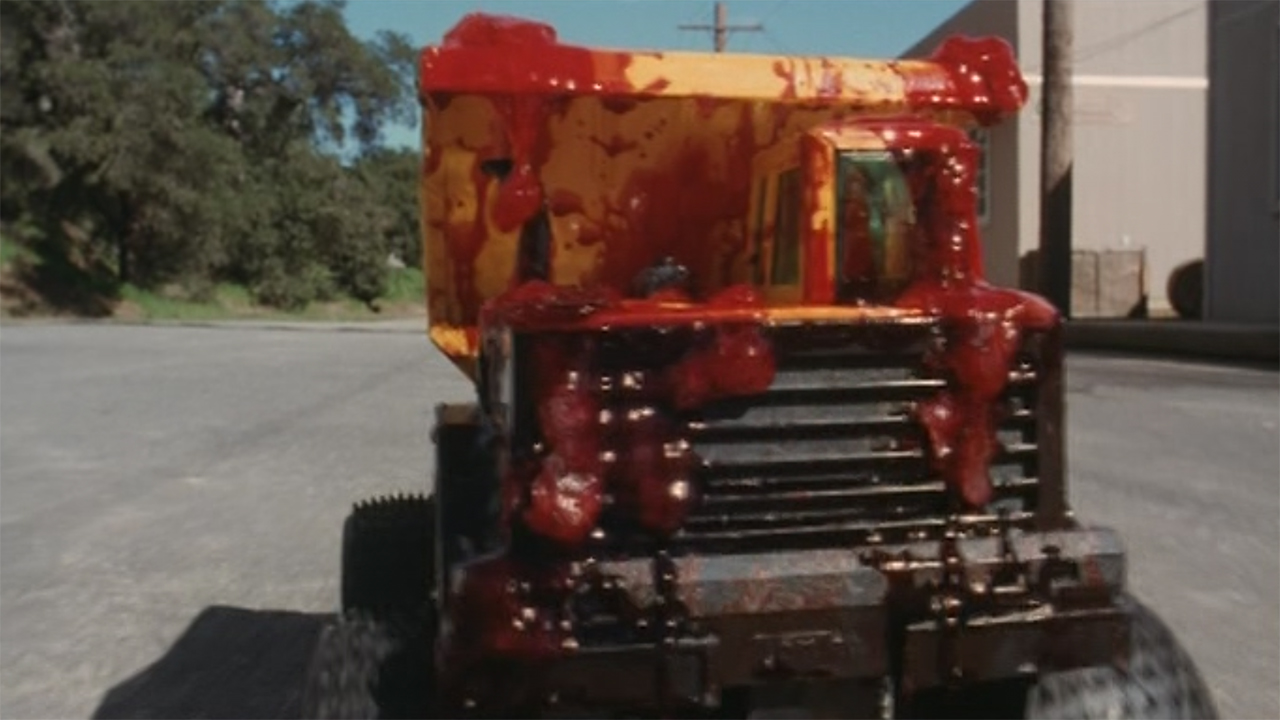
Stephen King’s Maximum Overdrive is a film that has its fans, but it’s a fair bet that a significant percentage of the appreciation comes tinged with the classic “so bad its good” irony. It’s quite different than the short story on which it is based (“Trucks,” from the 1978 collection Night Shift), and there are some gaps in logic that ultimately render it nonsensical – but at the very least it does feature some extreme horror and a darkly comedic tone that broadly suggests that nobody on the planet should take it too seriously. It’s a dumb movie, but far from an awful one.
Its quality (or lack thereof) is not something that precisely haunts the author/filmmaker either, as he has long been open about the shortcomings of his directorial debut – and he has his own justifications for them. Tony Magistrale brought up Maximum Overdrive during his interview with King for 2003’s Hollywood’s Stephen King, and the subject of the non-fiction book provided a blunt explanation for the feature and its disappointments:
The problem with that film is that I was coked out of my mind all through its production, and I really didn't know what I was doing [as the director of the film]. I learned a lot from the experience, however, and I would like to try directing again some time.
Given the strength of the original short story and the dismissal of the previous adaptation by its creator, this is a circumstance that creates a natural argument for a remake. There is clear potential in the material, which has strong themes about our society’s overreliance on technology, and nobody is so precious about Maximum Overdrive that they would automatically dismiss a new take as unnecessary.
But here’s the real downer part: in October 1997, director Chris Thompson attempted a remake of Trucks that aired as a small screen feature on USA Network, and it is a work so powerfully terrible that it makes Maximum Overdrive look Oscar-worthy. It’s a considerably different movie than the 1986 theatrical release and one deviates from the source material in its own way, and both are to be explored in this week’s Adapting Stephen King.
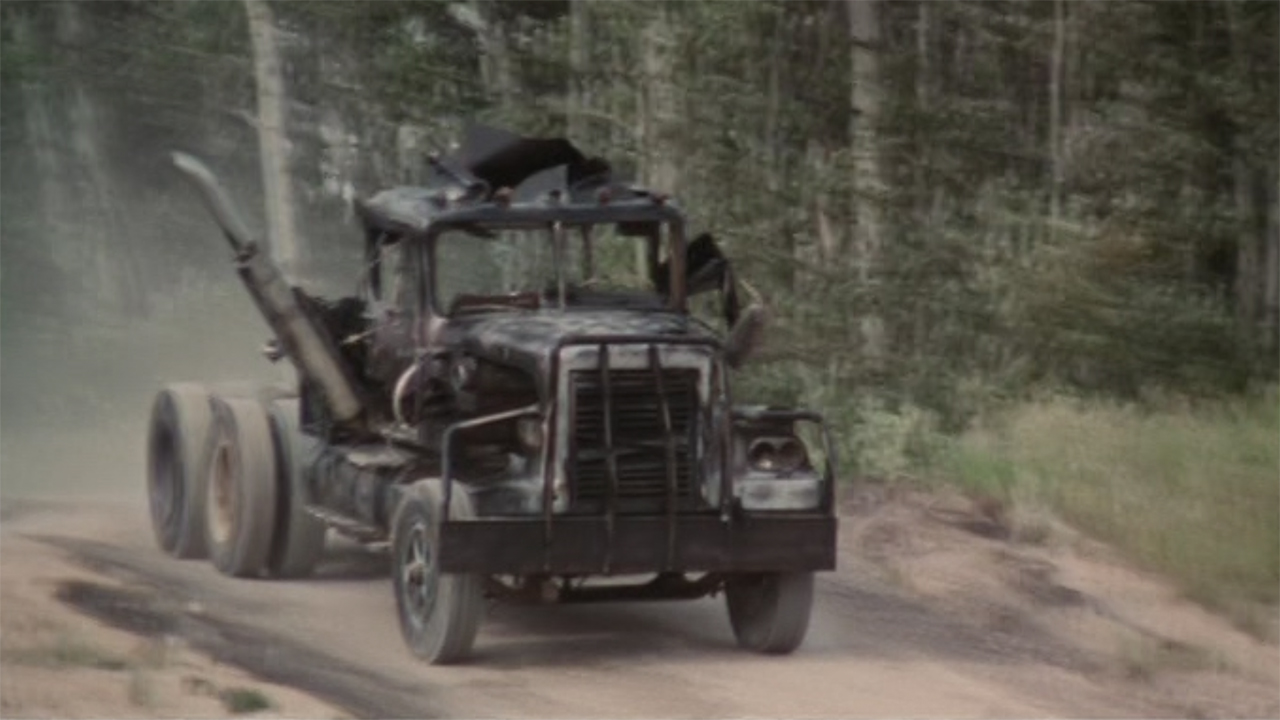
How Chris Thomson’s Trucks Differs From Stephen King’s Maximum Overdrive
Far and away the most significant difference between Chris Thomson’s Trucks and Stephen King’s Maximum Overdrive is the approach to tone – which, weirdly enough, sees the former hone closer to the short story than the latter. The 1987 film is a thoroughly tongue-in-cheek affair that starts with an ATM calling a cameoing King an “asshole,” and has a primary villain in an 18-wheeler outfitted with a Green Goblin head and a picture of a clown on the back.
In contrast, Trucks tries to heighten the peril of the primary ensemble’s circumstance by keeping things serious and dramatic, both in terms of dealing with the cars gone crazy and within the various interpersonal relationships. There is only a single scene that tries to match Maximum Overdrive as a satire – one that features a bloody encounter between a postal worker and an “unmanned” RC car that eventually sees the innocent human get his head crushed against a curb – but it was never aired on television and was only added to the movie for the home video release. Furthermore, it’s a moment that is funny because of how over the top it is, rather than because there is any kind of demonstrated cleverness.
There is also a significant setting change, Trucks moving the action from North Carolina to Nevada – and with it comes another major difference that actually sees the remake stick closer to the short story compared to its predecessor. While Maximum Overdrive specifically says that the world’s machines coming to life is the result of a comet passing by the Earth, a similar celestial event is presented as just one of multiple possibilities that explain the unfolding events in the TV movie. The truck stop’s proximity to the site of Area 51 is another proposed alternative, as is the news of a nearby chemical spill that has occurred after a transportation vehicle ran into an electrical substation.
Your Daily Blend of Entertainment News
This approach is closer to the source material in that “Trucks” is perfectly ambiguous about the cause of the vehicular insanity that occurs – though what makes the 1997 adaptation different is the suggestion that what’s happening is only a local event and not a global one.
Also not to be found are any common characters between Trucks and Maximum Overdrive, as the remake works with an entirely original ensemble. There are a couple of cliché truckers in the mix in both adaptations, but the antagonistic relationship between the miserly truck stop owner (Pat Hingle) and his rebellious employee (Emilio Estevez) in the original film is changed, as the rest stop in the remake is made to be a father/son operation (Timothy Busfield and Brendan Fletcher). Also thrown into the mix is a tour guide (Brenda Bakke) who is showing off the sights to a hippie (Jay Brazeau) and a feuding father (Roman Podhora) and daughter (Amy Stewart) when the chaos begins.
I’ll lastly mention that there is not a single AC/DC song featured on the Trucks soundtrack, which is unquestionably to its detriment.
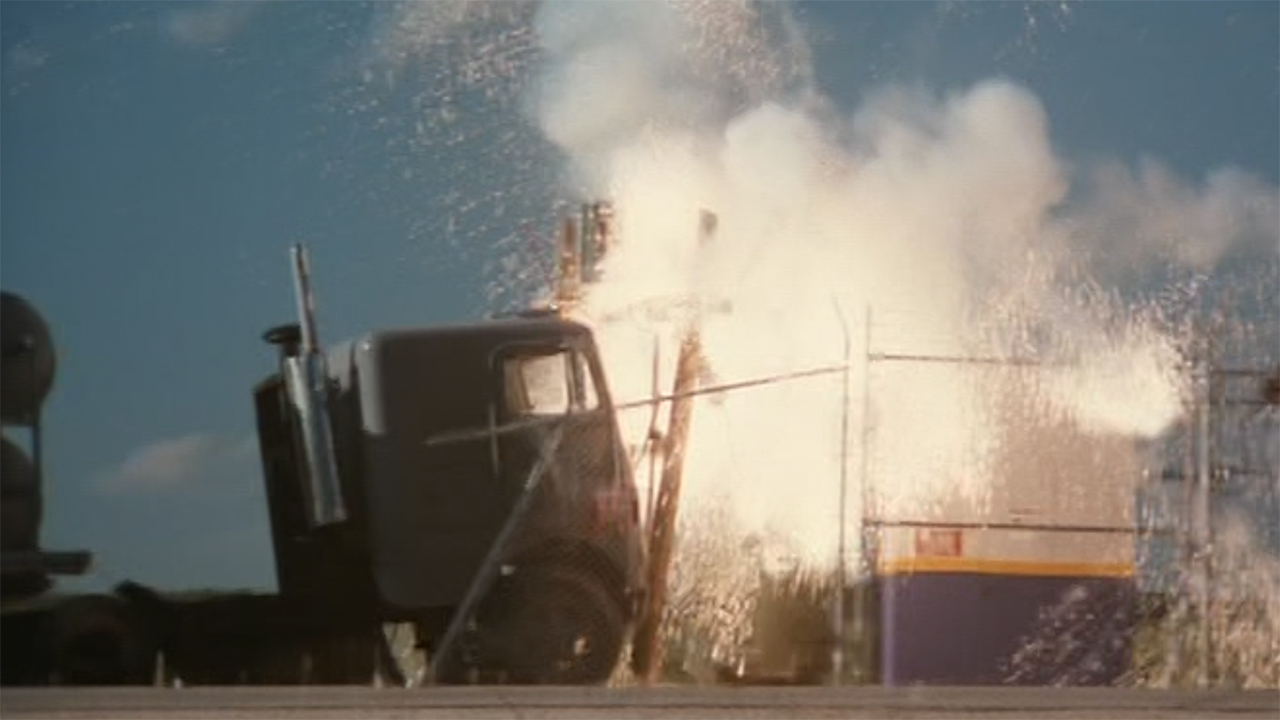
How Chris Thomson’s Trucks Differs From Stephen King’s Short Story
In adapting his short story as Maximum Overdrive, Stephen King had to add a great deal to “Trucks,” including the creation of a first act that sets everything up and introduces all of the main characters (it’s an in media res narrative as he originally wrote it). This, in a way, made the work of Trucks screenwriter Brian Taggert a bit extra challenging, as he not only also had to add to the source material, but additionally create an iteration that stood apart from King’s big screen vision.
The end result of this is that there is far more original content in the TV movie than material sourced straight from the text. Obviously the premise of machines becoming self-aware is at the core of everything, there are similarities in tone, and the central mystery of “why?” is maintained (as noted) – but 98 percent of Trucks is innovation.
Rather than provide a full recap of the events in the movie that play out as they exist in contrast to the short story, it’s instead much easier to highlight the single actual plot device that is featured in both Stephen King’s “Trucks” and Chris Thompson’s small screen feature: the titular vehicles’ demand for gasoline. There is a point in both versions when a détente is initiated that sees the blood-thirsty trucks cease their violent actions so that the humans will refuel them.
In Stephen King’s vision, it’s the ultimate power shift moment, as the species Homo sapiens becomes truly subservient to their own creation and are destined to be slaves feeding and repairing their mechanized masters. In Trucks, however, that shift never happens, and the refueling scene is primarily utilized in the script as an opportunity for the characters to try and escape the rest stop, and get their hands on a gun – rendering it much more similar to Maximum Overdrive (albeit without the nonsensical ending that sees the heroes escape in a motorboat).
Trucks does end on a down beat similar to the short story, but it’s more intimate than apocalyptic. The Timothy Busfield and Brendan Fletcher characters believe they have gotten to safety when they see a helicopter carrying Amy Stewart’s character, but after they take off together they realize that nobody is piloting and they will surely die very soon.
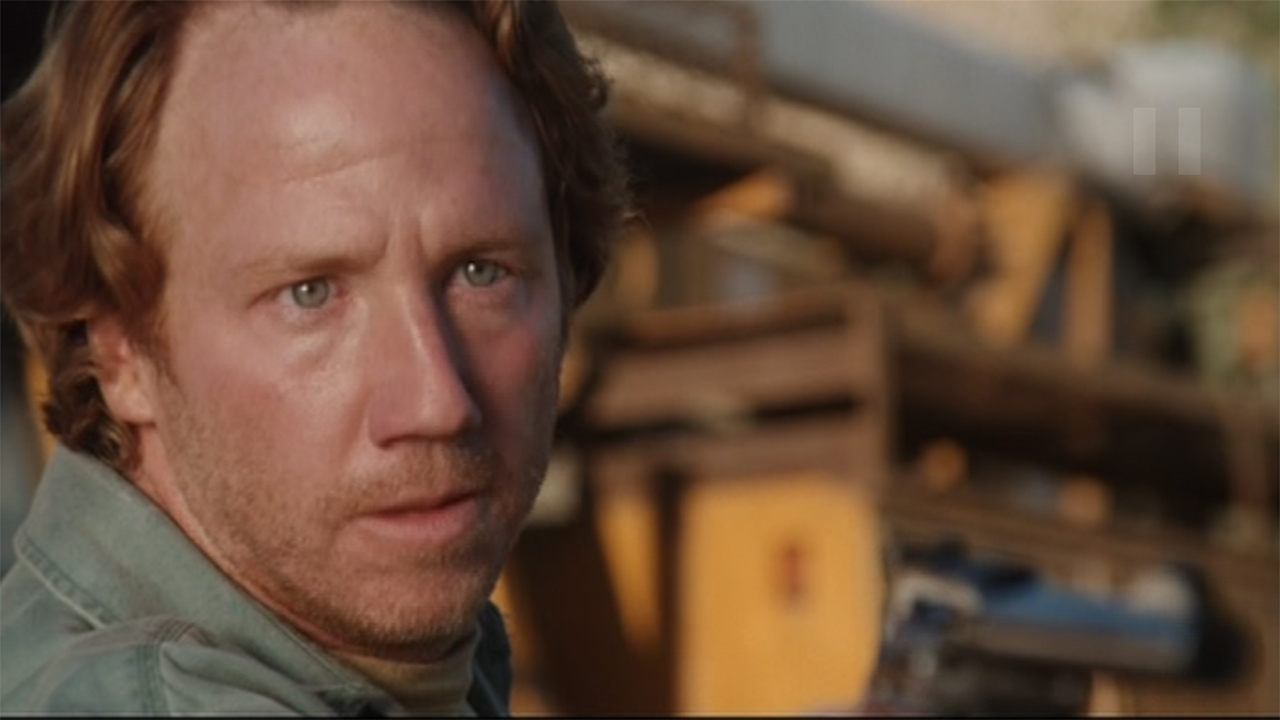
Is It Worthy Of The King?
There are many avenues to pursue in critiquing Stephen King’s Maximum Overdrive, from its inconsistent internal logic to its limited character building, but anyone who views it as any kind of unforgivable cinematic disaster needs to give Chris Thomson’s Trucks a watch – and that’s basically the only circumstance under which I would ever recommend it. When viewed in comparison to its predecessor, the 1997 TV movie screams “it could be far, far worse.”
Despite it making a number of very different choices than the 1986 film, Trucks features many of the same issues, and suffers far worse from them because of the stark tone. Without the winks that let you know that the movie is in on the joke, what you’re left reacting to is a pile of tropes and poorly constructed scares, and more than anything it’s just a miserable experience that features little entertainment value.
Even the parts that try and tie it closer to the source material don’t do it any favors. The vagueness surrounding the origins of the mayhem doesn’t enhance the insanity and randomness of the events like it does in King’s original piece; the different possibilities tossed out just come across as inconclusive plot threads that the movie doesn’t know how to handle. It’s like Trucks tried to find a middle ground between the short story and Maximum Overdrive, and it’s an incredibly dumb choice.
Even after revisiting both the goofy version and the awful version, I still maintain that there is a legitimately good movie that could be made out of “Trucks.” The larger themes of the story resonate just as well today as they did when the material was first published in 1973, with technology only becoming more inextricable from modern life in the last few decades. The key is finding a filmmaker who can simultaneously provide audiences with authentically captivating characters and animate machinery in a way that is both logical and terrifying.
Given what we’ve seen made in the last 36 years, that’s perhaps too tall an order – and after witnessing the terribleness of Trucks one could be excused for feeling extreme pessimism about the prospect. However, I’ll continue to remain hopeful that somebody will figure it out someday.
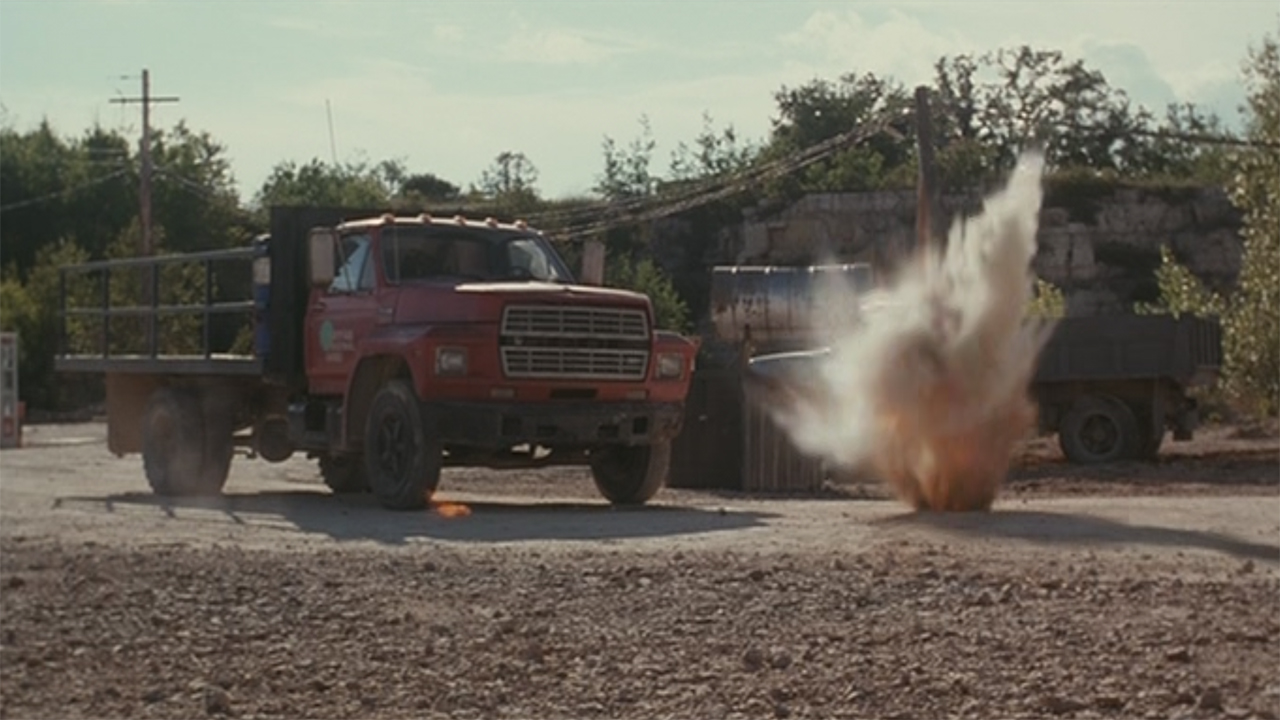
How To Watch Chris Thomson’s Trucks
I’m sure that nobody will be surprised by the fact that Trucks is a Stephen King adaptation that has not yet made its entrance into the world of HD – but unlike some other 1990s projects from the canon, this one is easy to find and watch. Those of you who are into physical media and/or trying to build the Ultimate Stephen King collection will find that DVD copies of the movie are easy to find for under $10. On the digital front, the small screen feature is now available for free (with ads) on IMDB TV, and you can purchase/rent streamable versions from Google Play, Amazon, or Apple.
Following The Shining, Quicksilver Highway, The Outer Limits and Trucks, next week’s piece will finally be putting a cap on the year 1997 in Stephen King adaptations, as I’ll be putting Mark Pavia’s The Night Flier under the microscope and looking at whether or not the HBO movie is a vampire story that still possesses sharp fangs. The feature will be in the CinemaBlend TV section come Wednesday, and in the meantime you can explore my previous Adapting Stephen King columns by clicking through the banners below.







Eric Eisenberg is the Assistant Managing Editor at CinemaBlend. After graduating Boston University and earning a bachelor’s degree in journalism, he took a part-time job as a staff writer for CinemaBlend, and after six months was offered the opportunity to move to Los Angeles and take on a newly created West Coast Editor position. Over a decade later, he's continuing to advance his interests and expertise. In addition to conducting filmmaker interviews and contributing to the news and feature content of the site, Eric also oversees the Movie Reviews section, writes the the weekend box office report (published Sundays), and is the site's resident Stephen King expert. He has two King-related columns.
